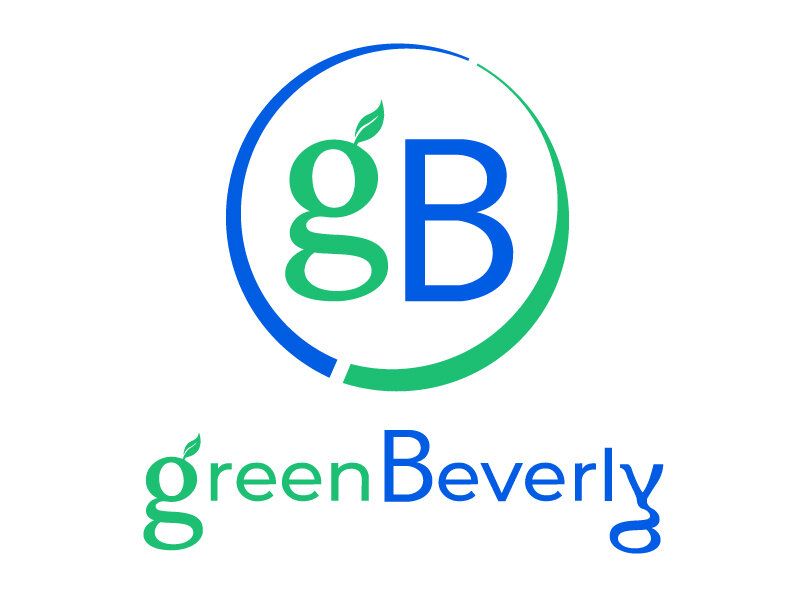Composting in Beverly
The city of Beverly offers many opportunities for residents to live a more sustainable lifestyle through composting. Composting converts organic matter (primarily food waste and garden material) and into a valuable fertilizer that is beneficial to soil and plants. Composting is beneficial for the environment because it reduces the waste stream, improves soil health, cuts methane emissions from landfills, lessens erosion, conserves water, and reduces personal food waste.
CITY-WIDE CURBSIDE COMPOSTING
Beverly encourages its residents to try composting by providing incentives to sign up for curbside food compost pick up programs (including Black Earth Compost, City Compost, and Bootstrap Compost). Incentives currently include a $20 discount on your annual trash bill, a free countertop food scrap bin, and a wheeled 13 gallon curbside cart. Find up to date composting options and incentives online at the city’s website.
If you’ve never participated in a curbside compost program, don’t worry – the companies take care of the hard part for you! Fill your countertop bin with kitchen scraps, when full empty that into the larger curbside bin, then set the curbside bin out for pickup the night before your collection day. That’s it. Lining both your countertop and curbside bins with compostable liners (either certified compostable plastic, or simply paper bags) helps cut down on cleaning and is encouraged by some of the pickup companies.
Because industrial compost sites get “hotter” than backyard compost piles (the heat generated by decomposing matter increases with mass), you can generally throw in certified compostable products, such as “plastic” cups or takeout containers, which take too long to break down in a home system. Another difference is that industrial sites can accept a wider variety of food waste, like dairy or meat scraps, that are not recommended for backyard sites since they can create unpleasant odors and attract pests.
CURBSIDE COSTS
Black Earth recently had to raise their costs based on supply chain issues, but is still the city’s most affordable option at less than $100 per year for weekly pickup of a 13-gallon bin. Participants receive a voucher for a free bag of compost to redeem every spring; bags are widely available at hardware stores and garden centers around town. They also offer a $10 bonus for referring another community member and have free or low cost add-ons for textile pick up, yard waste, and overflow stickers for weeks where your bin’s capacity isn’t quite enough.
Bootstrap Compost’s rate of $11 weekly/$572 annually includes a clean 5 gallon container provided to you every week and finished compost upon request, as well as two free pickups with a referral.
City Compost costs $5 per week or $260 per year for weekly service along with a $7 start up cost for the 5 gallon container. The amenities offered after enrolling include a clean container provided to your home every week, finished compost available monthly, and an optional countertop bin at a cost of $3 for a used bin or $10 new.
IN-HOME COMPOSTING
Composting at home can be a great option if you have the space for it, and if you have a garden that will benefit from the finished product. What you can compost at home is more limited than what commercial sites can accept, but you can still effectively reduce your food waste and get an excellent fertilizer product out of it. Plus you don’t have to remember what night to set out your bin and, of course, it’s free other than equipment start-up costs.
The EPA has a good online starter guide on home compost, but if you’re interested, we recommend getting in touch with us! You can always drop us a note, but this week join Green Beverly and the Beverly Public Library for a FREE hybrid in-person/online workshop on home composting.
Learn about backyard composting from a Green Beverly expert:
Wednesday September 29, 7-9pm
Register to attend via Zoom
or drop by the BPL (32 Essex Street, Beverly 01915)
COMPOSTING YARD WASTE, AND PUTTING COMPOST ON YOUR YARD
Another way to mix composting into your lifestyle is to recycle your yard waste. Yard waste that can be composted includes leaves, grass clippings, weeds, brush, and branches. Never compost invasive or poisonous species, though: when pulling weeds like black swallow-wort, poison ivy, bittersweet, or nightshade, put anything with a root, seed, or berry into a standard trash bag and throw away. Mass Audubon has a good list of invasive species that includes easy visual ID.
The city of Beverly has a Yard Waste Composting Site where all yard waste can be dropped off. This site is located at 16 Standley Street. All you need to do is bring your yard waste and proof of residency in the city of Beverly. Their hours are Monday, Thursday, and Saturday 8:00 am to 3:30 pm.
Image via USDA
Let’s not forget to touch on the last stage of the compost lifecycle: using it! When you spread high-quality compost on your lawn, yard, or garden, you are encouraging healthy soil and more plant growth, which in turn leads to more carbon sequestration – a win-win for our environment. Black Earth Compost is encouraging residents in its network, including Beverly, to participate in its Compost for Carbon Drawdown Challenge. By offering a discount and free delivery on fine screened compost, the company hopes to get more people than ever to add compost to their green spaces this fall, generating more plant growth and achieving more carbon sequestration via suburban lawns.
As residents of Beverly we have so much opportunity to make the community a better place environmentally. Including composting in your daily routine is rewarding to you, your neighbors, and especially to our world as a whole.
CONTRIBUTORS
Ella McDonnell
Margaret Collins


